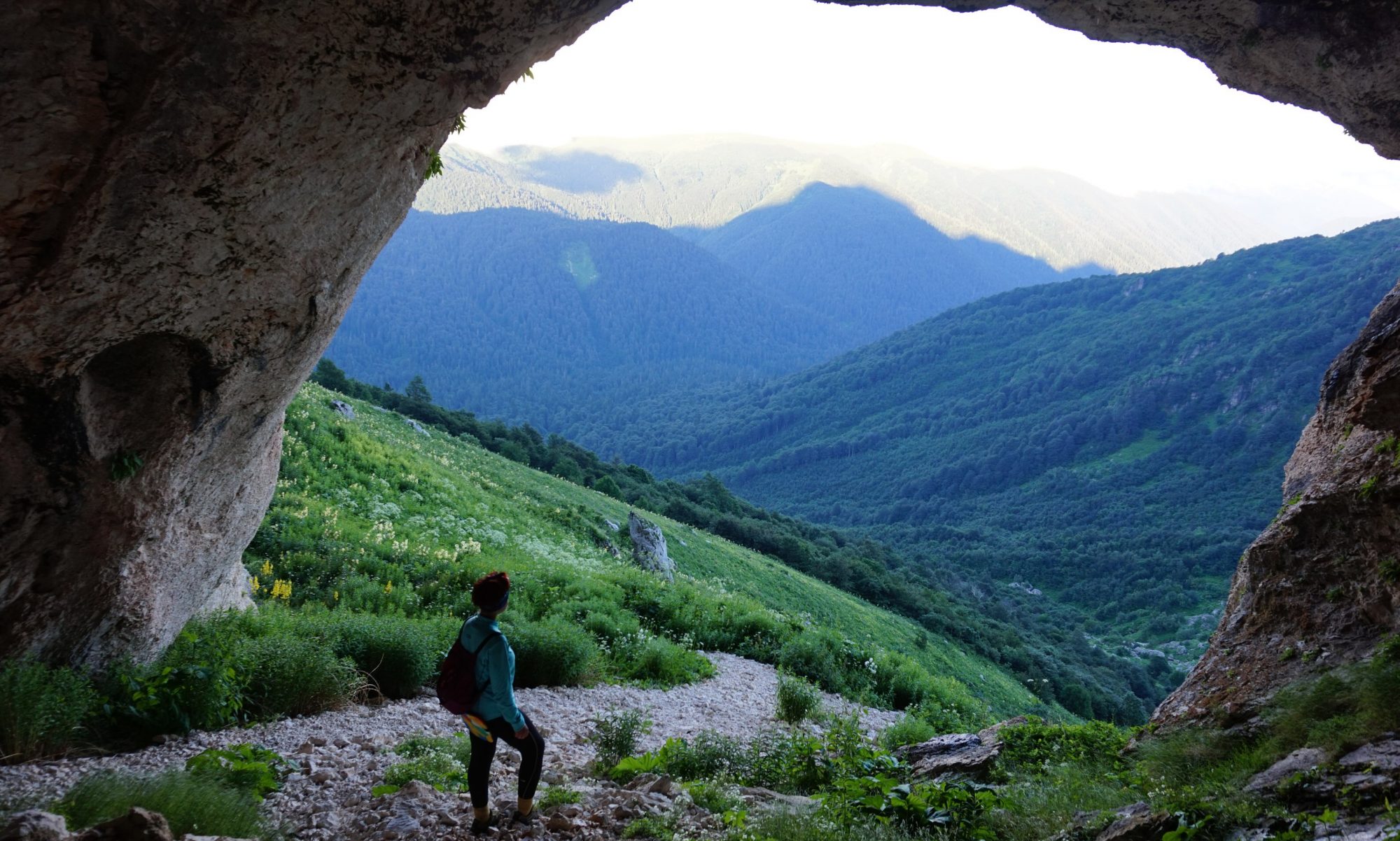Several times, I came across promotional leaflets with photos of private schools. Clean wide corridors, spacious classrooms, large windows, new whiteboards, good furniture, pleasant colors and neat interiors…
This is how the public school for deaf children in Vilnius looks. It is the biggest educational center in Lithuania, and almost the only school for deaf children. The center comprises a kindergarten (for children from 3 to 7) and a school (for children from 7 to 18).
Children in Lithuanian general education schools study for 12 years (like in Latvia), while deaf
children in special schools study for 13 years. And the school that I visited is a dream school.=)
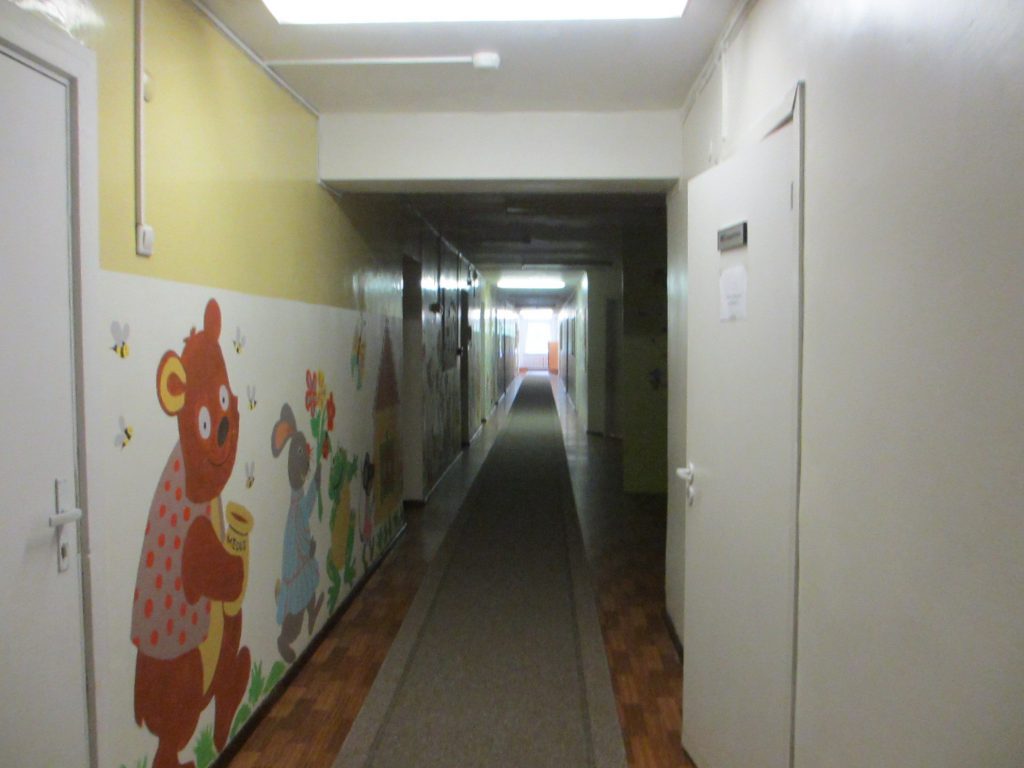
From my viewpoint, it’s perfect. There is a large staff of specialists working at the school. Apart from teachers, there constantly work several sign language interpreters, speech and language therapists, a psychologist and a social psychologist.
Children can visit the psychologist’s room at any time. The psychologist is also responsible for a sensory room, a room for emotional relaxation, where children can calm down, relax and talk in an unusual setting.
The social psychologist does career guidance and search of a profession that is adequate to the child’s abilities.
But most of all I was amazed by the arts and crafts teacher! It is a man with skilful hands and great enthusiasm. The school organized a good workshop, where every child can learn arts and crafts. And not just theory! It’s not just sawing out a wooden bar! They build ships, house and bridge miniatures, learn repair skills and restore ancient objects… It’s incredible work! Also, high-school children can take an exam in arts and crafts. In order to so this, they need to come up with their own project (what they wish to do) and register the
whole process: collect a file with drawings and work plans, materials and instruments used, and photos of the work process.
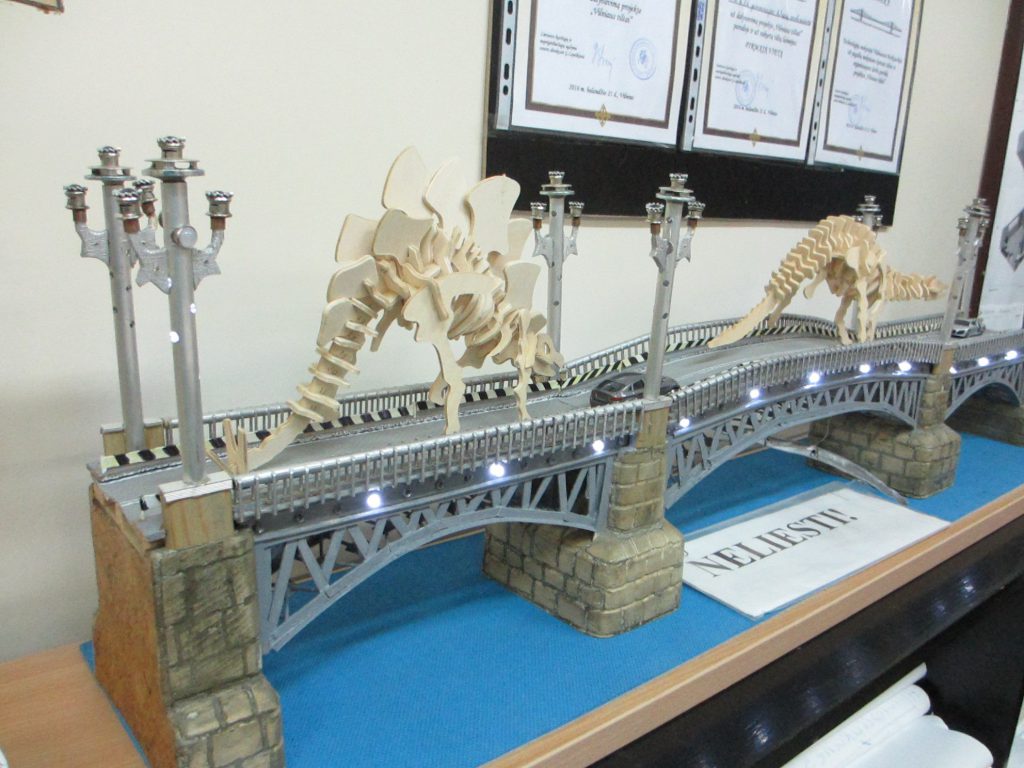
Apart from arts and crafts, I was impressed by English lessons. English! Children in Russia have trouble mastering the Russian language, and here English is mandatory for all schoolchildren from the 6th grade. Even if it’s only written language and it is taught in a simplified form, but it’s a second language! “How can we do without English today?” ask surprised teachers.
The school also has unusual integrated lessons: lessons that unite two subjects into one. For instance, biology and English. Or, again, English and arts and crafts. This is how children learn and memorize new words together with a real subject, which is very important and effective.
Apart from this, during all the school years children have sign language lessons. There they learn to express themselves correctly using sign language, and learn history and culture of Lithuania’s deaf people.

The system used at the school is the bilingual education system for children with hearing loss. Bilingualism implies the use of both sign and oral
speech in the learning process. It is good for deaf children. This system departs from automatic drilling of the words and develops the child’s intelligence. No, children don’t speak. However, they develop! They can think, solve non-standard problems, they choose their professions and can do what they like. They enter society, and are interested in it.
After school, all the students take one obligatory examination, the Lithuanian language. The second exam is elective. Everyone has the right to enter university, but not all universities provide sufficiently good conditions for it. I was told that it’s word of mouth that usually works: one deaf person enters a university, tells others that the conditions are good and there are sign language interpreters, so others follow him or her. Many children with hearing loss choose artistic professions, a lot of them do crafts and learn repair or the art of restoration. There’s even a very famous fashion designer in Lithuania, who is rather successful in the fashion world: he travels a lot and holds international exhibitions.
Like in Russia, people with hearing loss receive disability benefits here, but it’s hard to make a decent living on it, that’s why almost everyone tries to find a job.
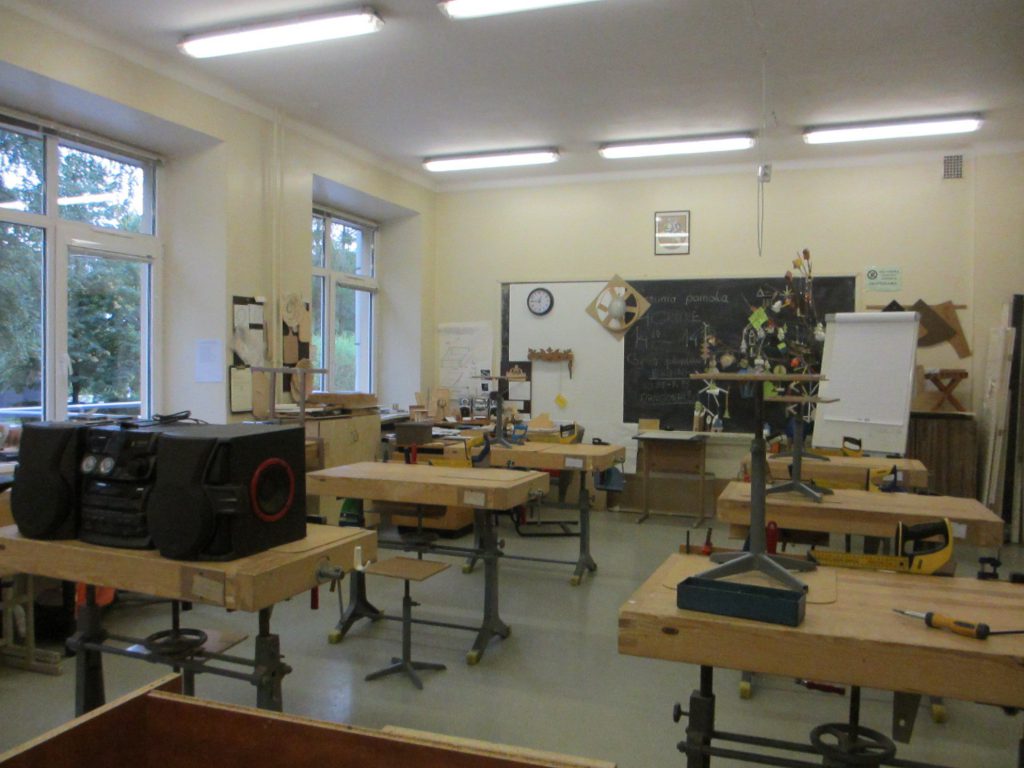
At the school, there work teachers who can use the sign language, and those who can’t. The latter are provided with the services of a sign language interpreter to teach more efficiently.
The school is also residential: around half of the children stay there during the school week, and are taken home on Friday evening.
It strikes me that all the teachers are completely calm. Rock-solid. They aren’t nervous, don’t hurry, and don’t worry if something goes wrong. They are calm. And it shows very well. They have the same salaries as in Saint Petersburg, but the conditions are more humane.
I was lucky to see an utterly amazing sign language dictionary. It’s so extensive and convenient to use that I wonder how much time and effort they spent doing this job. In this dictionary, you can even find a sign you saw by chance: you just need to chose the menu entries that you know (the position of the palm, the finger pattern, the movement, if one or both hands are active), and the website will give you all the signs with these data. Deaf people themselves said that they also use this source to
improve their vocabulary. By the way, the website is made mostly by deaf people themselves! They are skilled enough, and have excellently mastered both the sign language grammar and that of the oral language.
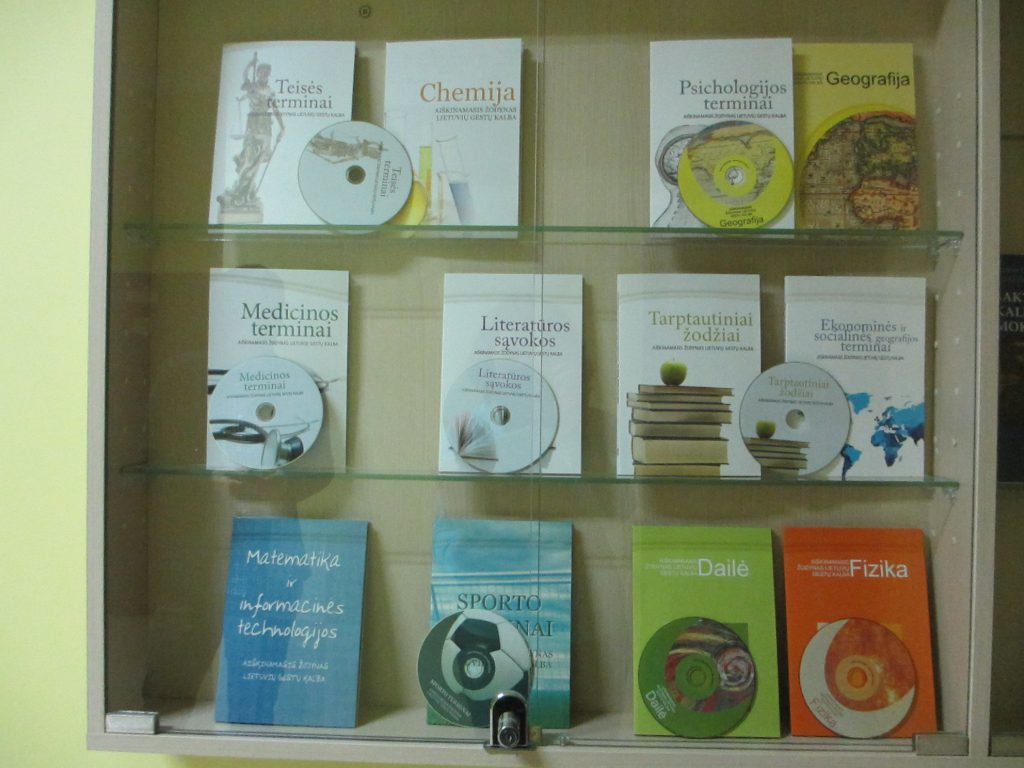
Apart from this, the school has its own film studio, a small, but good room with quality equipment, which helps create miracles there! The school created video dictionaries for every subject. The dictionaries contain terms, explanation of their meanings, examples of their use in a sentence… And all the same in the sign language. This program is most often used by teachers to explain new material and clarify the meanings of difficult words.
I can talk about the school for a very long time… There are wonderful open-minded teachers there. They showed and told me everything, invited me to their lessons, introduced me to other teachers… At one point, it seemed to me that I was going to stay there even at night. And it’s splendid to feel such openness and readiness for dialogue.
The school’s address: Filaretų g. 36, Vilnius
The website of the sign language (unfortunately, only in Lithuanian): http://gestai.ndt.lt/
The website with the terminology video dictionary (also in Lithuanian): http://www.ndt.lt/gestu-programa/isleistos-priemones/
